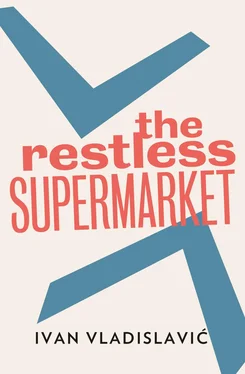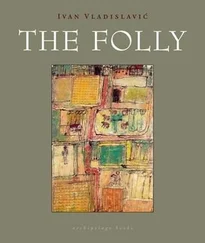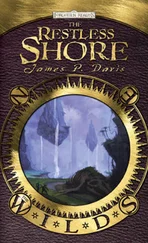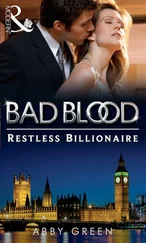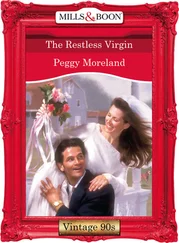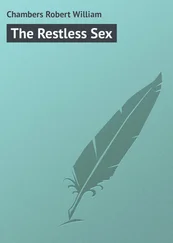It was impossible to discuss my fears with Spilkin. I could not be sure what he thought of Mevrouw Bonsma. He seemed to like her a great deal. But then he also treated her as if she were a fool. He thought nothing of speaking about her in the third person, while she sat nodding pleasantly, fingering the ugly beauty spot stuck like a pastille of salted licorice to the corner of her mouth.
As an act of self-preservation, to save myself from being swept away, I began to tell her about my System of Records. ‘Over my head,’ she protested, ‘Greek to me. I’m no good with words.’ But she was impressed with me, I could tell, she thought I was frightfully clever, and so I kept pressing my clippings on her and reading her extracts from the notebooks. At other times, it was lexical gymnastics, flashy routines full of pikes and rolls and tearles with a twist, moves I could execute in my sleep. ‘ Medley, Mevrouw,’ I would say. ‘Heterogeneous mixture. See meddle. Meddle, busy oneself unduly. And mêlée. Same root in “mix” — from the Latin misceo .’ Then again: ‘Do you see, Mevrouw,’ I would say. ‘ Wormwood. From the OE wormod, wermod , after worm, wood: cf vermouth. And vermouth. From the G. Wermut , wormwood. That’s what we call a backflip. Let me show you how it works here in the dictionary.’ And sometimes, when both of us were exhausted, I would fall back on frenzied bouts of lexical fartlek. ‘Here we are: absinth. A shrubby plant, Artemisia absinthium , or its essence. Also called “wormwood”. Hence a liqueur flavoured with wormwood. Are you still with me? Artemisia. Any of various plants, including sagebrush and wormwood, f. ME, f. L., f. G. plant sacred to Artemis. Artemis. G. Myth. The virgin goddess of the hunt and the moon. Sagebrushperhaps? f. L. salvia , the healing plant, from salvus , healthy, safe. Salvation!’ And so on. She would bite her bottom lip with her ragged incisors and gaze at me anxiously. I had the distinct impression that she admired me, an impression I had not gained from a member of the fairer sex (to stretch a point) for quite some time, and it flattered my vanity, I suppose, or what few shreds of it remained. I couldn’t help myself: I began to take pleasure in making her clap one of her big red hands to her mouth in astonishment and delight.
My behaviour was uncharacteristic; obviously, it lacked the decorum people associate with me. And it appeared to infect Spilkin too. Lapsing out of character, just as I had done, he began to tell jokes. Have you heard the one about? he was always asking. Mevrouw Bonsma, who did not have a funny bone in her body, declared that he was the wittiest man alive. Under this onslaught, shoals of old punchlines came adrift in my head and slewed about, looking for jokes to attach themselves to. Knock knock. Who’s there? Ja. Ja who? Boo. Boo who? To get to the other side. And one to hold the light bulb. Because it feels so good when I stop. What was that Indian’s name again? Said the Texan. Said the Irishman. Said the Jew. Clutter and disorder. I found myself plucking index cards out of box-files like some door-to-door salesman in a cartoon, an ugly little man with Dagwood Bumstead shoes and a daft hairstyle. Spilkin told another joke, something off-colour, lime-green, puce.
What was this attack of nerves all about? To speak for myself, I found the lack of discrimination in Mevrouw Bonsma’s dim interior alarming. A great jumble of music had been poured into her, like leftovers into an olla podrida, and it bubbled out in an indiscriminate broth. I am a repository too; but in me, everything has its place. In me, things are filed, whereas she was merely filled.
I imagined that Spilkin, with his fine sense of discrimination, felt the same. When Mevrouw Bonsma sat at our table, we burbled away desperately, as if trying to mend a crack in her foundation. When she returned to her piano, we sat in depleted silence, with our backs stiff and our fists clenched on our knees, while our newspapers lay unread on the table before us. When I went home exhausted, Spilkin was still clamped to the table under the sconce, like a floodlit statue.
Later it occurred to me that if Spilkin had felt the same anxieties as I did, he would have responded with a recitation of the eye chart or some favourite prescriptions, a mortar of solid sense, rather than this sludge of inane jokes. In the light of his subsequent behaviour, I came to believe, strange as it may seem, that he was competing with me for her favours. In which case he had infected me !
Then Mevrouw Bonsma, bless her chapped heels, announced that she had invited Merle and Benny to join us for afternoon tea.
More people! I was mortified. But as it happened, the newcomer — because there was only one — was just what was needed to restore our equilibrium.
*
Benny turned out to be a Pekingese, a canine knick-knack, disproportionately fierce. Benito, I called her afterwards: Il Puce, The Fleabag. In those days, animals were not allowed into the Europa, and so she spent her first visit to the Café tethered to a downpipe next to the door, nipping at the heels of patrons as they came and went. She had a go at my turn-ups, but I made her see sense with the business end of a brogue. They say that people grow to resemble their pets, or choose pets that resemble them. Merle was small, full of bounce, with round wet eyes and limp grey hair in a bob. She was already settled at our table, in the company of Spilkin and Mevrouw Bonsma, thankfully not in my chair. I hardly had time to sit before she declared, matter-of-factly, ‘You must be A. Tearle.’
‘I am the Tearle,’ I replied, ‘the definite article.’
‘I’ve seen your letters to the editor. Suzanna shows them to me.’
‘Good.’ How about that.
‘I liked that one about the rubbish bins, very acute. How did it go again?’ She tucked one flap of her hair behind her ear, as if to hear me better.
‘You mean the one about the lack of?’ I paused for effect, and then recited from memory: ‘One appreciates that the removal of the rubbish bins from our streets is part of a strategy to thwart the murderous ambitions of terrorists. But with littering now reaching unprecedented heights, one cannot but fear that the litter problem itself has become a time bomb waiting to explode.’
‘That was well put.’
‘Thank you.’
‘I’ve heard all about your System of Records too, from Suzanna, who professes not to understand what you’re up to. Sounds fascinating.’
‘Thank you.’ This enthusiasm was quite disarming.
‘Have you got them in your bag?’
‘A good sample.’
‘So, what does it stand for — the A?’ With a sharp forefinger, she traced the letter in the monogram embossed on my leather briefcase, and then tucked back another flap of hair to expose a second delicate and expectant ear.
‘Aubrey.’ Sotto voce , but Spilkin’s theatrical eyebrows twitched. ‘However, we don’t hold with first names. You can call me Tearle.’
‘Poppycock.’ From the Dutch pappekak . The sort of mush that would agglomerate in Mevrouw Bonsma’s dental sluices. ‘I’ll do nothing of the sort. I am not a public schoolboy. It’s pernicious, this bandying about of surnames. Even the press has fallen into the habit. Thatcher said this and Reagan did that. As if people are no longer entitled to the common courtesies. As long as I have a say in the matter, I shall be Mrs Graaff to the world at large and Merle to my friends.’
As it happened, I agreed with her on the neglect of honorifics in the public sphere. But with Spilkin and Tearle it was quite another matter. Before I could begin to explain, she rattled on. ‘Pleased to meet you, Aubrey.’ She gave my hand a hard squeeze. A metacarpal twinged. ‘As for you, Myron, Suzanna’s told me all about you too.’
Читать дальше
